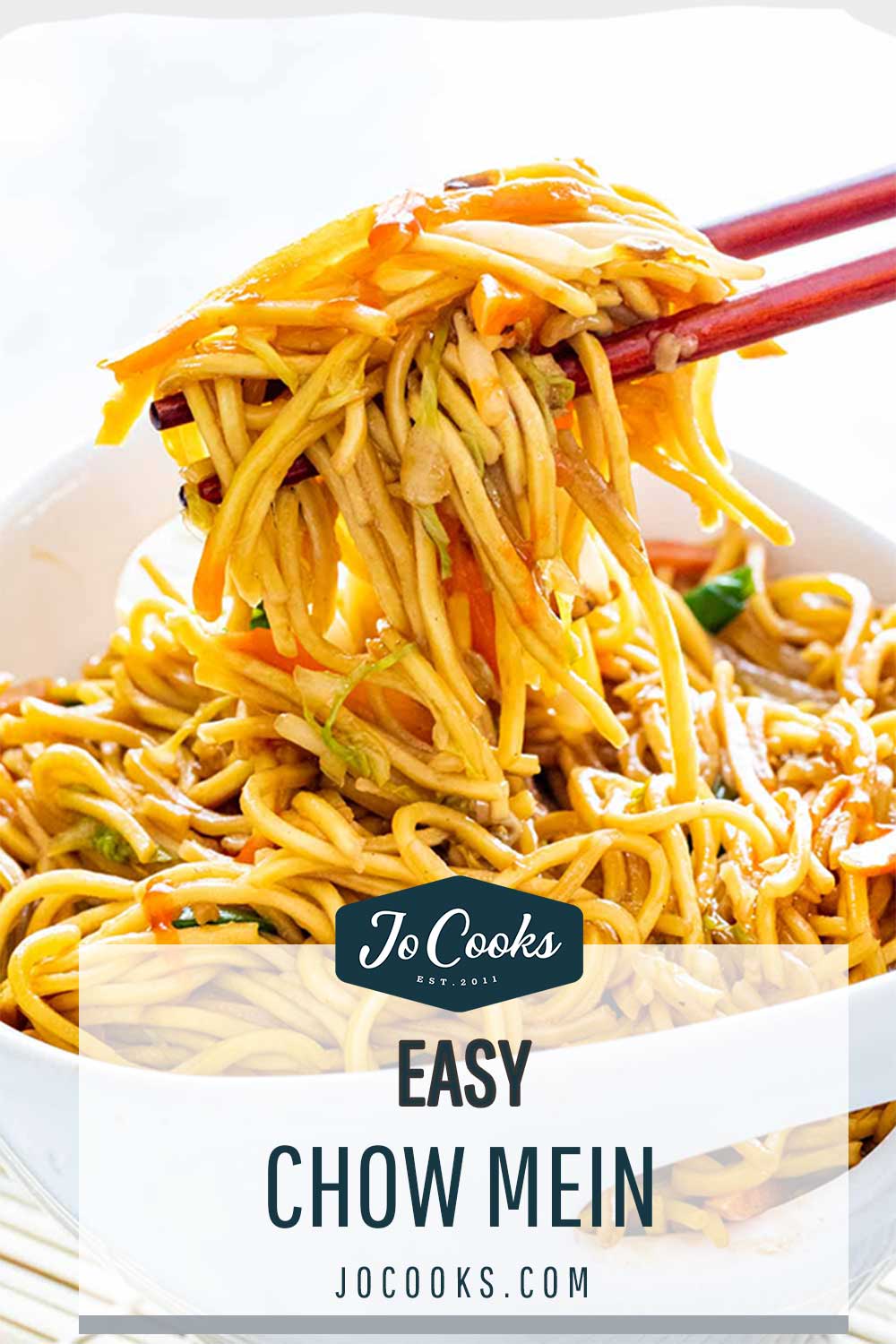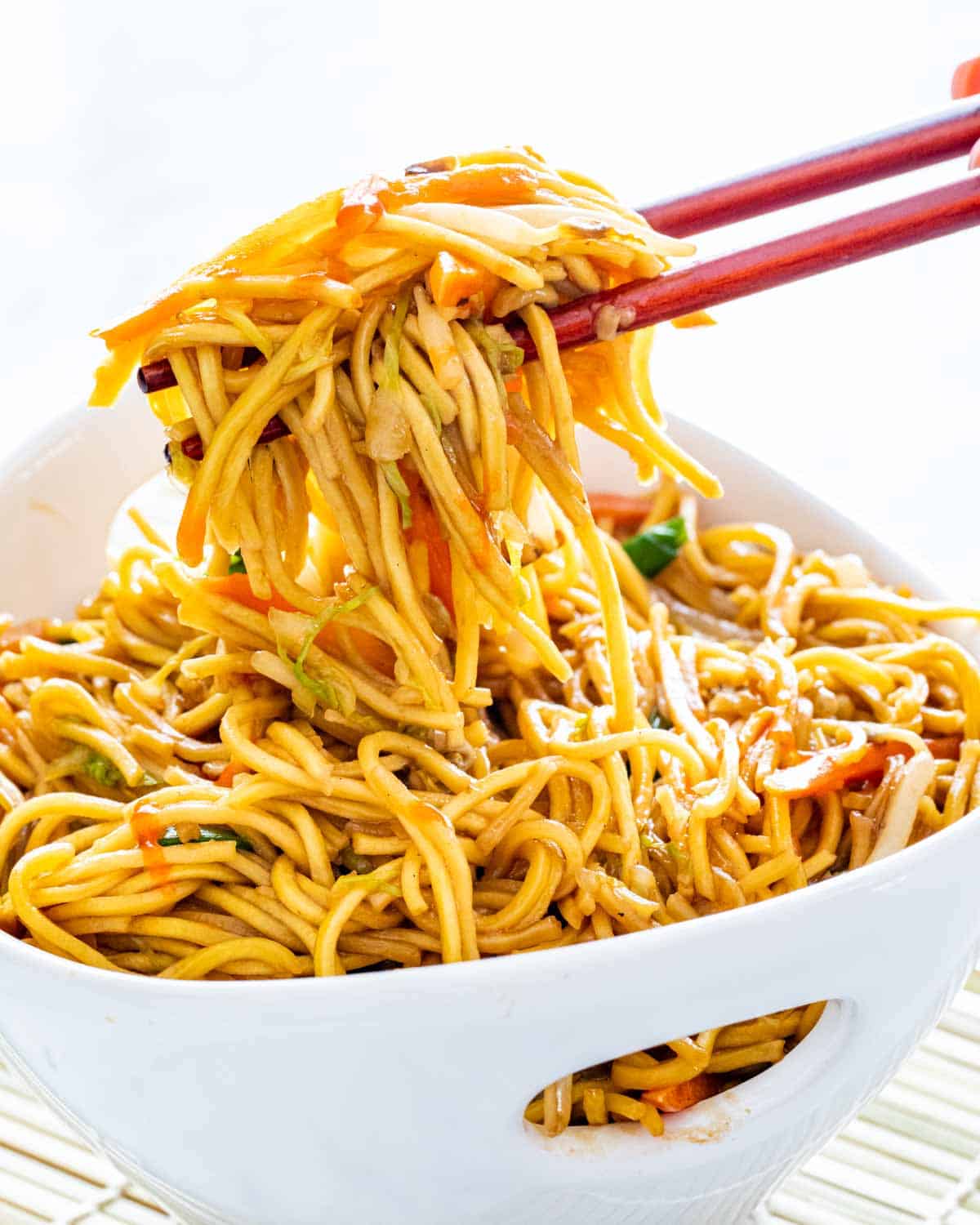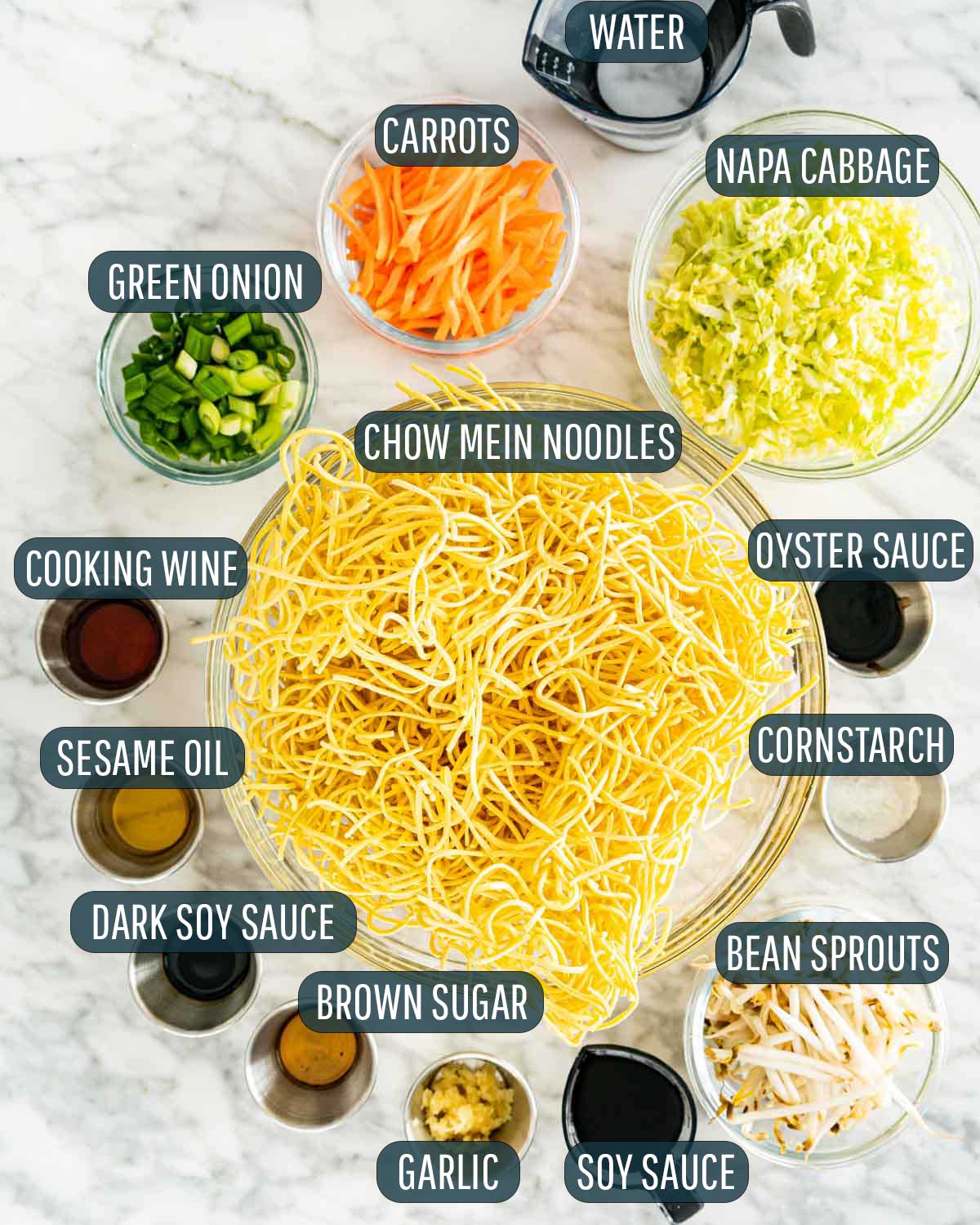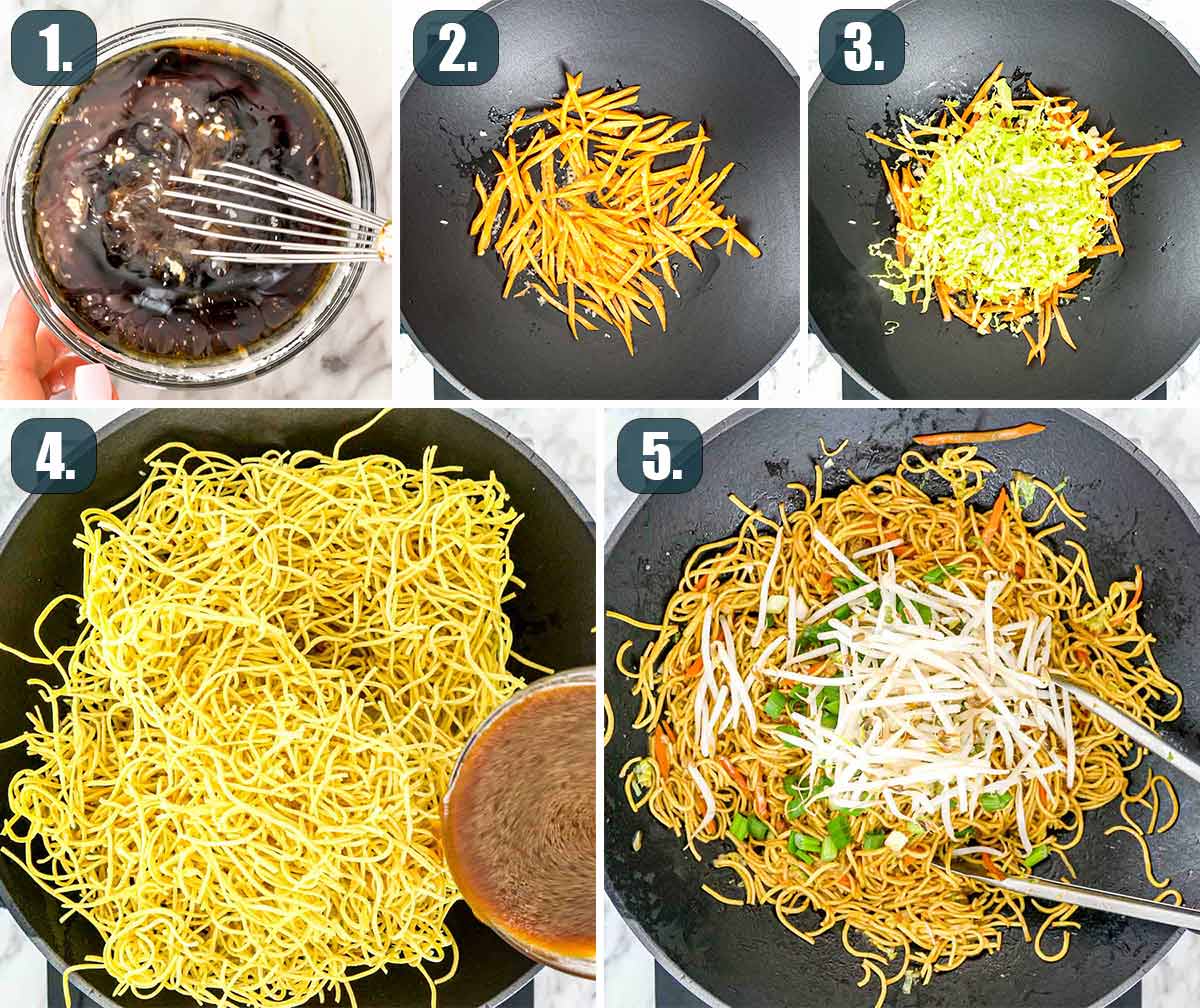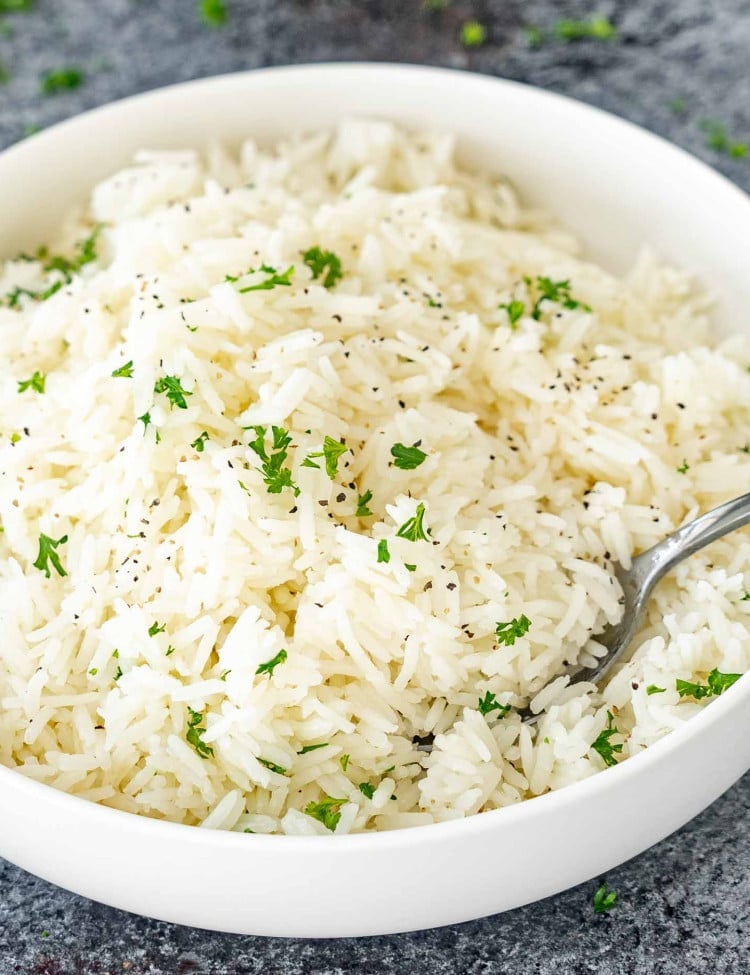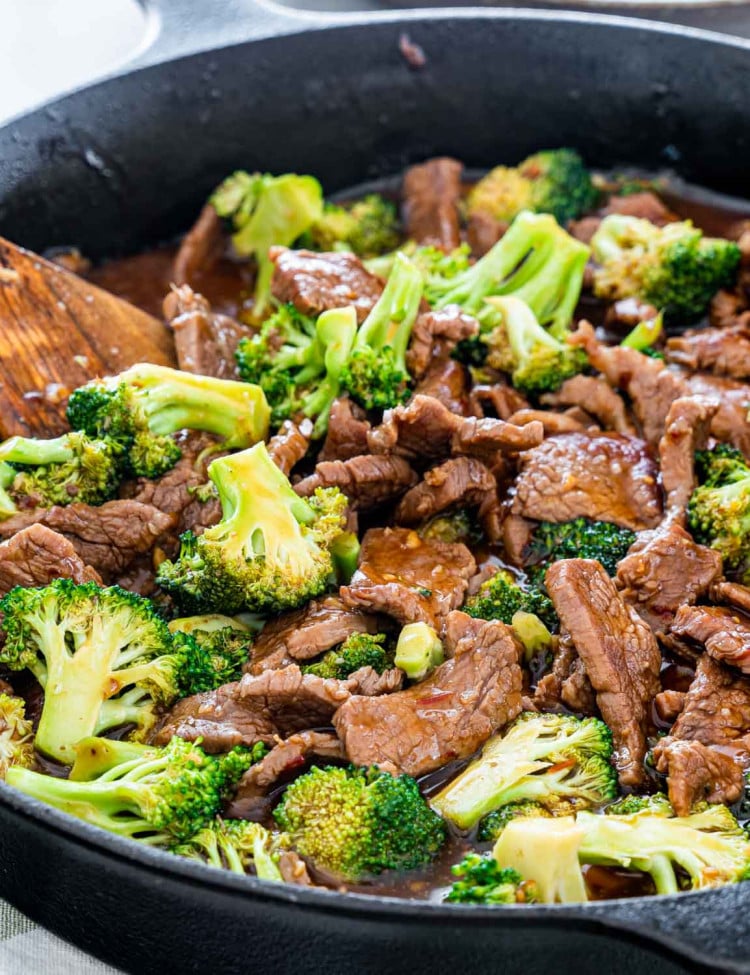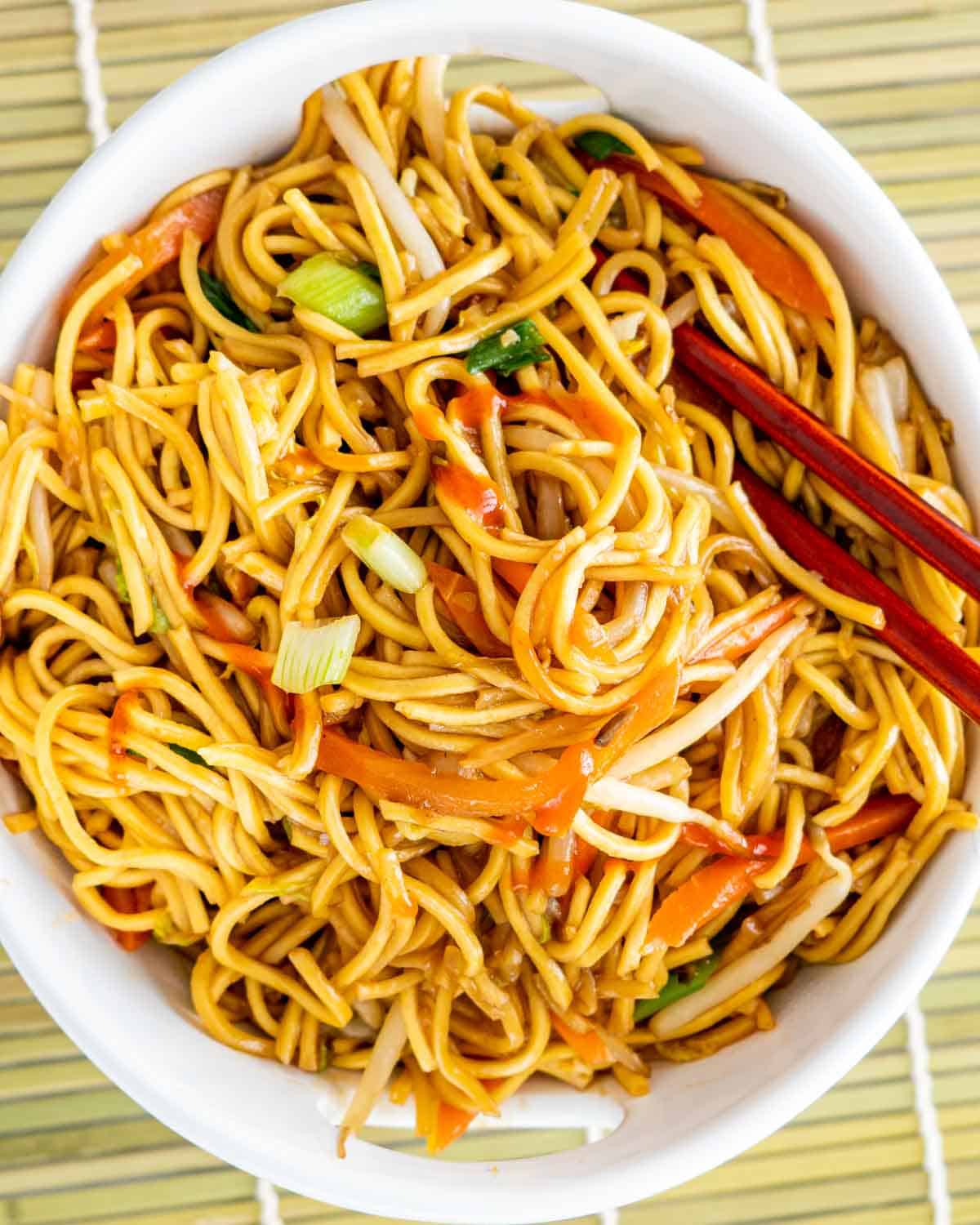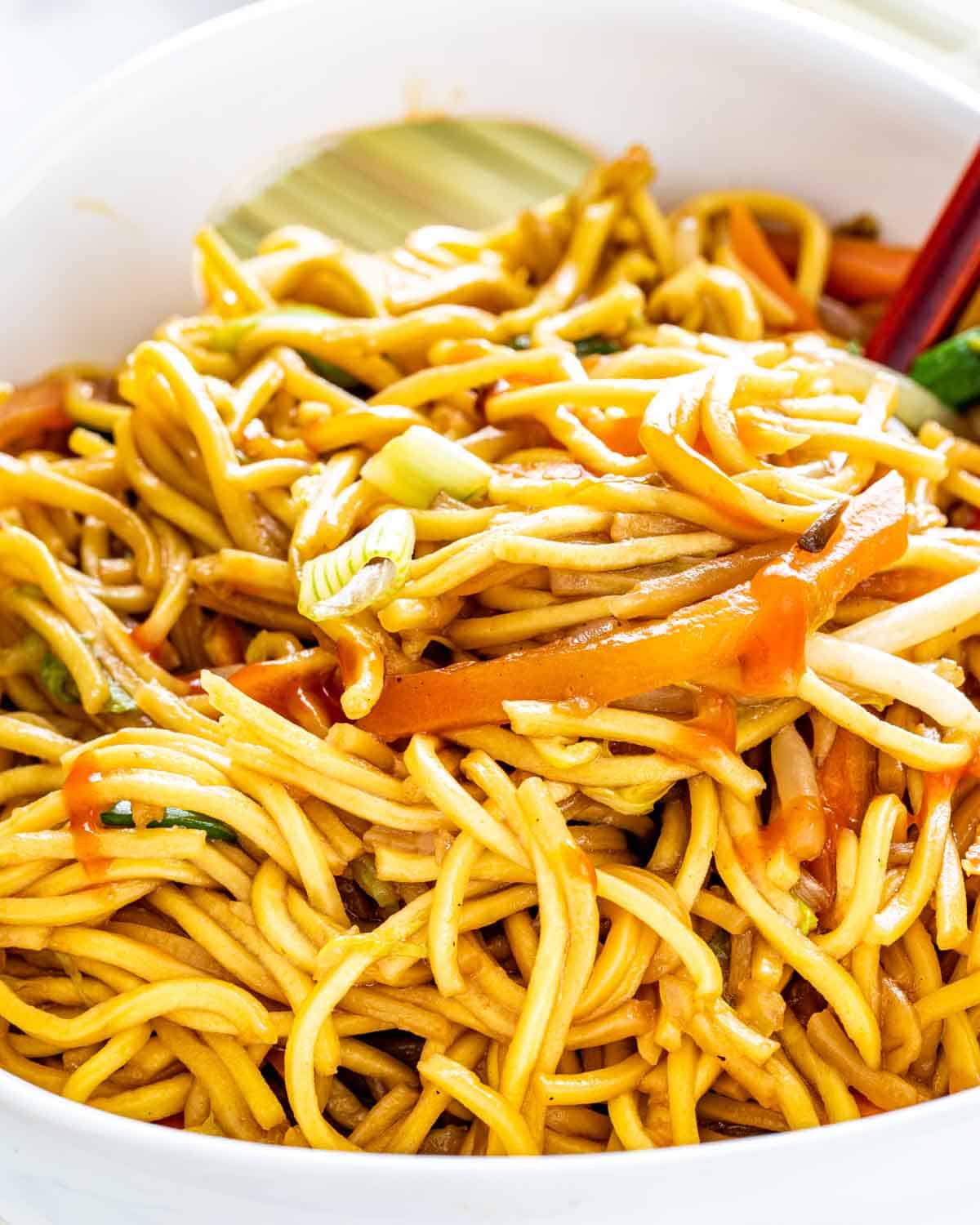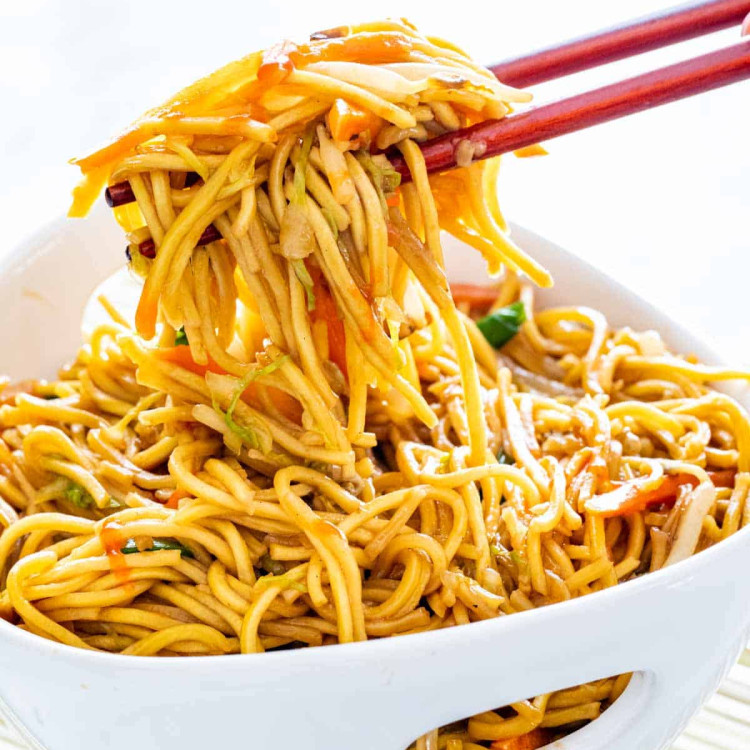Fresh or Pre-Cooked: Use fresh chow mein noodles for optimal texture and taste. If using dried noodles, cook them according to the package instructions before adding them to the stir-fry. Rinse and drain well to prevent sticking. Crispy vs. Soft Noodles: Traditional chow mein can be made with either crispy or soft noodles. For crispy noodles, fry the noodles in oil until golden brown before adding them to the dish. For soft noodles, simply add the cooked noodles directly to the stir-fry.
The chow mein sauce is a blend of several key ingredients that bring out the signature flavors of the dish. Use a mix of soy sauce, oyster sauce, Chinese cooking wine, dark soy sauce, sesame oil, brown sugar, and cornstarch to create a rich, savory, and slightly sweet sauce that coats the noodles and vegetables beautifully. If you prefer a vegetarian option, substitute the oyster sauce with mushroom soy sauce. I like to use a combination of garlic, carrots, cabbage, green onions, and bean sprouts. Garlic and carrots add a sweet and aromatic base, while shredded Napa cabbage brings a tender yet crunchy texture. If you can’t find Napa cabbage, green or savoy cabbage are great substitutes. Feel free to experiment with other vegetables like snap peas or bell peppers. These ingredients are readily available at most grocery stores, but I find the freshest produce at my local Asian market. In a medium-sized bowl, whisk together 1 cup of hot water, ¼ cup of low-sodium soy sauce, 2 tablespoons of oyster sauce, 2 tablespoons of Shaoxing wine, 1 teaspoon of dark soy sauce, 1 teaspoon of sesame oil, 1 tablespoon of brown sugar, and 2 teaspoons of cornstarch. Set aside. Tip: Make sure the cornstarch is fully dissolved to avoid lumps. Heat 2 tablespoons of peanut oil in a wok or large skillet over high heat. Add 2 cloves of minced garlic and sauté for 30 seconds. Stir in 1 julienned medium carrot and cook for another minute until they start to soften. Add 4 cups of shredded Napa cabbage and sauté for 2 more minutes until the cabbage is wilted. Tip: High heat keeps the veggies crisp and tender. Add 12 ounces of chow mein noodles to the wok. Give the sauce a quick stir, then pour it over the noodles. Let them cook for 2 minutes before tossing them in the sauce. Keep tossing for 3 to 5 minutes until the noodles soften and cook completely. Tip: Pre-cook the noodles if they are not ready-to-eat. Stir in 3 chopped green onions and 1 cup of bean sprouts. Toss everything together until well combined.Tip: For added protein, stir in cooked chicken, beef, shrimp, or tofu when you add the noodles.
What is Chow Mein
Chow Mein is a Chinese dish of stir fried noodles with vegetables and sometimes shredded meat like chicken, beef, pork or seafood. The words chow mein really just mean “stir fried noodles”.
Chow Mein vs Lo Mein
Let me first say that I love both Chow Mein and Lo Mein, they are a couple of my favorites whenever I go to a Chinese buffet. However, if you’re really wondering what the difference is between the two, let me just say not a lot. The main difference is in the method and it comes down to frying time. Chow Mein usually has crisper noodles, so you add a bit more oil and increase the frying time. Both Chow Mein and Lo Mein are made with Chinese wheat flour noodles made with eggs. For Chow Mein you can use either dried or fresh noodles, while for Lo Mein you use fresh lo mein noodles. That’s about it! Which is better? It all comes down to your preference!
Can I make the sauce ahead of time?
Yes, you can prepare the sauce ahead and store it in the refrigerator for up to 3 days. Give it a quick stir before using.
Leftovers
If you’ve got some leftover chow mein, store it in an airtight container in the refrigerator for 3 to 4 days. Usually I just reheat it in the microwave for a couple minutes before serving again.
Freezing
You can also freeze chow mein, stored in an airtight container in the refrigerator for 2 to 3 months.
More Asian Favorite Recipes
Lo Mein Asian Pork Rolls Pad Thai Kung Pao Chicken Shrimp Fried Rice Pad See Ew Chicken Teriyaki Chicken Mushroom Stir Fry Bibimbap (Korean Rice Bowl) Beef Chow Mein
